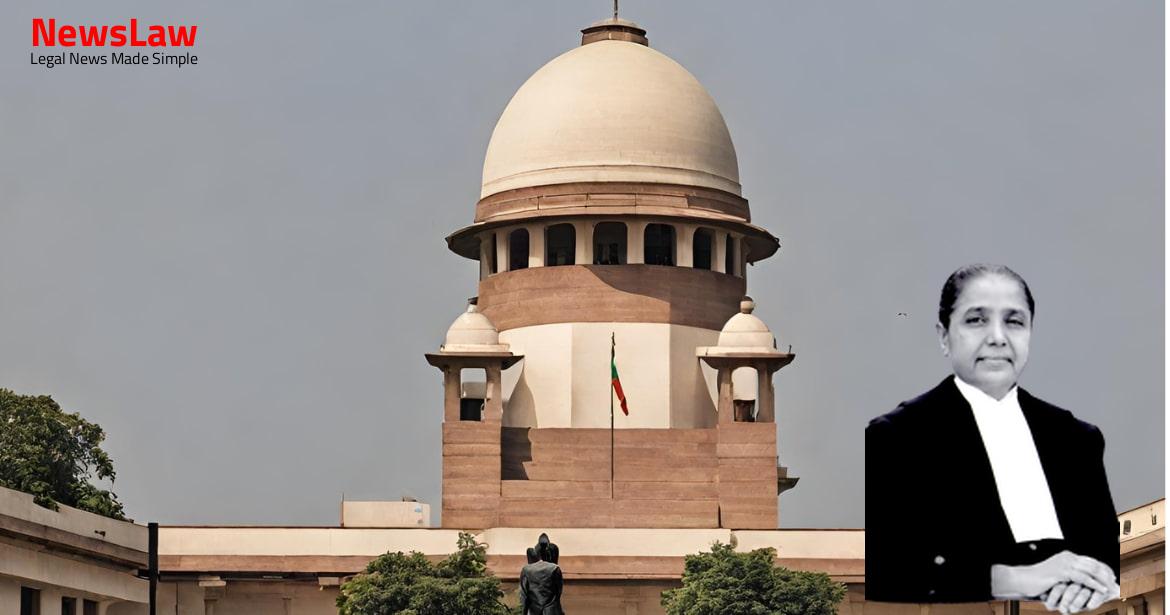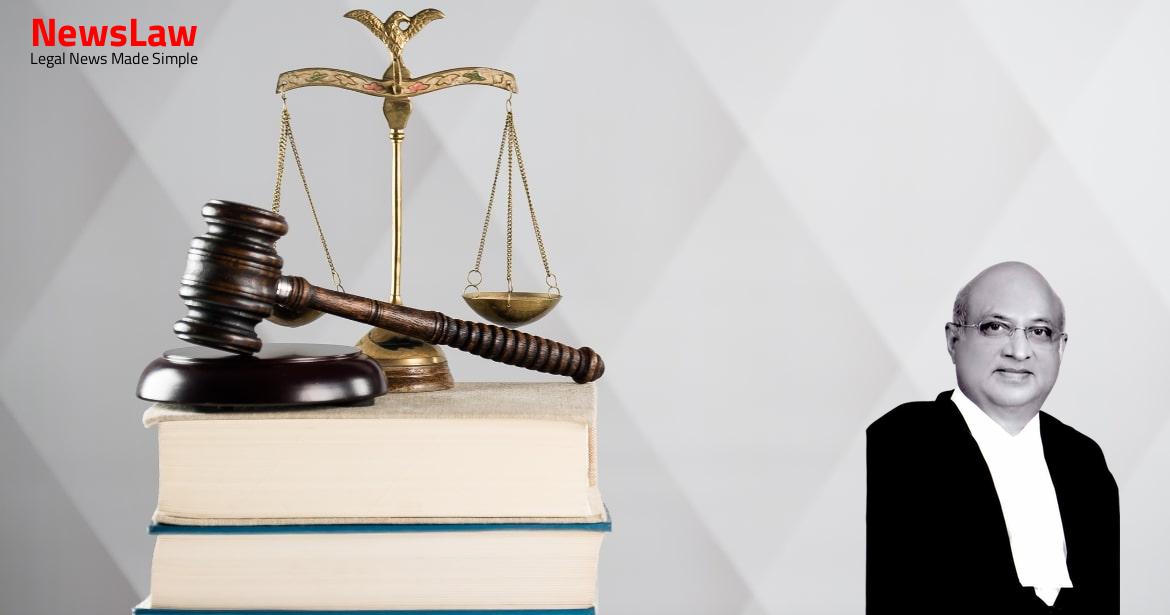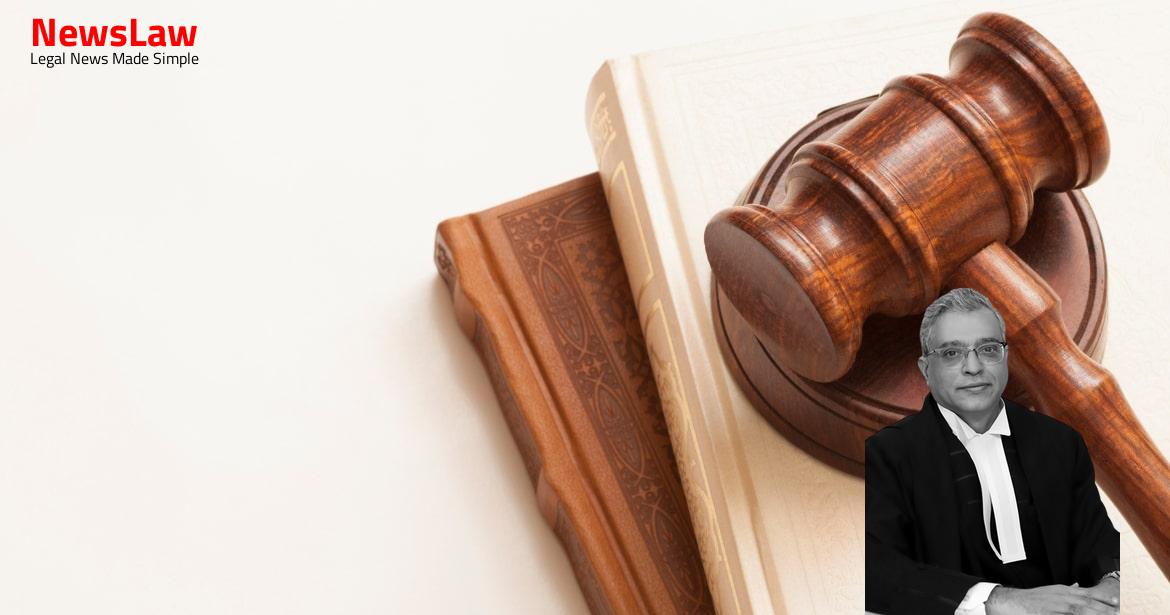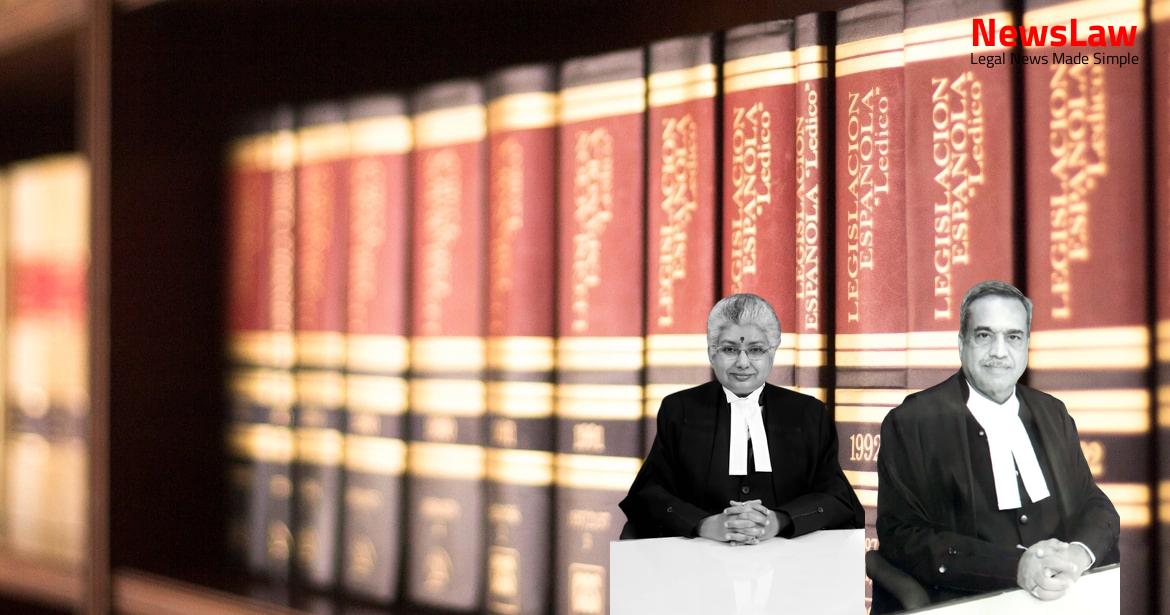In a significant legal battle, the Supreme Court of India has upheld the judgment in the case involving allegations of cowardice during a military operation. The SGCM decision against the accused highlights the grave nature of the charges and the duty of soldiers to defend the nation’s integrity. The court’s ruling emphasizes the seriousness of the matter at hand and serves as a reminder of the significant responsibilities that come with serving in the armed forces.
Facts
- Appellant posted in 3 Rashtriya Rifles (RR) Battalion in 2006, faced charges of exhibiting cowardice.
- During cordon and search operation, intense fire from militants resulted in casualty of Sapper Gurmail Singh and loss of LMG.
- Appellant accused of leaving his post, failing to retaliate, and allowing militants to break cordon.
- Witnesses examined, appellant hit by bullet in leg while jumping over wall during the incident.
- Appellant assailed order of Armed Forces Tribunal upholding SGCM sentence imposed on August 26, 2011.
- Case involved a brief contact with militants in village, exchange of fire, and subsequent retreat into maize field.
- -1.6
- 2.0
- -3.0
- -4.7
Also Read: Address Update Requirement: Legal Implications for Corporate Entities
Arguments
- The learned counsel for the appellant argued that the witnesses examined during the trial mentioned that the appellant was a good soldier who had participated in several operations without fear.
- The appellant’s counsel contends that the evidence presented by the witnesses was not properly appreciated by the SGCM and the Armed Forces Tribunal.
- According to the appellant’s counsel, since the appellant himself was injured during the incident, it is unjust to label him as a coward for allegedly abandoning his post.
- Due to the appellant’s previous record of service and bravery in operations, the charge of cowardice against him should not be accepted, and the findings of the SGCM and the Armed Forces Tribunal should be set aside.
- Learned counsel for the respondents presented the appeal papers and the order of the Armed Forces Tribunal.
- The SGCM concluded based on the evidence of prosecution witnesses.
- The Armed Forces Tribunal reevaluated the evidence and arrived at its own conclusion in the appeal filed by the appellant.
- Concurrent findings and orders of the courts below were cited as reasons for no interference.
- The death of appellant’s colleague in the militant attack and appellant’s lack of action were considered serious circumstances justifying the taken action.
- The appellant’s failure to use his weapons during the attack was highlighted as a pivotal factual point.
- Appellant’s current claim of not abandoning the post was mentioned without a satisfactory explanation for not using his weapons in a life-threatening situation.
Also Read: Army Discharge Case: Upholding Justice for Long Service Rendered
Analysis
- The appellant’s defence was that he had jumped over the wall to protect himself and attack the militants, but there was no reasonable explanation as to why he did not use the weapons he had when the attack occurred.
- The appellant claimed to have become unconscious for about 10 seconds, but even if true, this would not justify his lack of action thereafter, especially when a soldier was killed and the LMG was taken by the militants.
- The charge against the appellant was that he did not retaliate when his colleague was attacked and killed, despite having weapons at his disposal.
- The Court emphasized the importance of a soldier’s duty to defend the nation and the seriousness of turning away from a challenge in a grave situation.
- The Tribunal concluded that the appellant’s claim of being unconscious could not be accepted, as he provided detailed explanations of the events that occurred, indicating awareness.
- The appellant’s past conduct and reputation as a good soldier in previous operations were noted, but past glory is insufficient when facing allegations of cowardice in failing to defend the nation’s integrity.
- No evidence of victimization or malice was presented by the appellant to dispute the allegations against him.
- The scope of the judicial review was limited to assessing whether the appellant had fulfilled his assigned duties based on factual findings.
- The order of imprisonment need not be implemented at this stage due to a long lapse of time.
- The action taken against the appellant by SGCM and the Armed Forces Tribunal was justified.
- Despite the appellant exhibiting cowardice, the fact that he received a gunshot injury in the incident is noted.
- The order for imprisonment, which was for six months of rigorous imprisonment, is considered in the particular facts and circumstances.
- The dismissal of the appellant from service is deemed justified and does not require interference.
Also Read: Justice Served: Supreme Court Ruling on CBI Inquiry against Army Officer
Decision
- The appeal has been disposed of with no order as to costs.
- The order of dismissal from service is upheld.
- The order to undergo rigorous imprisonment has been set aside.
Case Title: DALBIR SINGH Vs. UNION OF INDIA
Case Number: C.A. No.-009885-009885 / 2011



